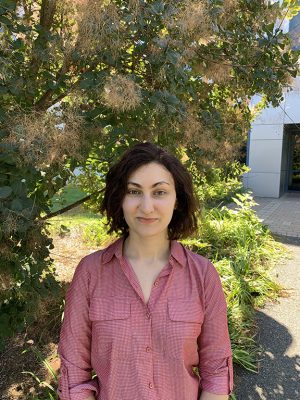
Gayane Vardoyan
University of Massachusetts at Amherst
PhD Candidate
Gayane Vardoyan is a PhD candidate in the College of Information & Computer Sciences, at the University of Massachusetts, Amherst. She is advised by Prof. Don Towsley. She holds a B.S. in Electrical Engineering and Computer Sciences (2011) from the University of California, Berkeley. Her research interests include the performance evaluation of classical and quantum communication systems. She interned at Inria, Sophia Antipolis during the summer of 2017. Previously, she worked at the Argonne National Lab and the Computation Institute at the University of Chicago.
Research Abstract:
In recent years, quantum communication technology has seen rapid advances, bringing the vision of a quantum Internet closer to reality. Certain types of quantum distributed applications, such as the E91 protocol for quantum key distribution, make use of entanglements to meet their objectives. Modeling such systems is vital in order to better conceptualize their operation, and more importantly, to discover and address the challenges involved in actualizing them. To this end, we explore the limits of entanglement switching networks and introduce methods to model the process of entanglement generation, a set of switching policies, memory constraints, link heterogeneity, and decoherence for a switch that can serve bipartite and tripartite entanglements. In one part of our work, we compare two modeling techniques: discrete time Markov chains (DTMCs) and continuous-time Markov chains (CTMCs). We find that while DTMCs are a more accurate way to model the operation of an entanglement switch, they quickly become intractable when one introduces link heterogeneity or decoherence into the model. We argue that with CTMCs, not much is lost in terms of accuracy and consequently we use them to model more complex systems. In another part of our work, we explore a set of randomized switching policies for a switch that can store a small number of qubits per link and study the capacity region. In prior work, we also contribute to the modeling and performance evaluation of congestion control algorithms. This includes developing a generalized modeling technique for TCP’s congestion window as well as developing a versatile fluid model for congestion-window or rate-based congestion controllers that can be used to analyze a protocol’s stability.